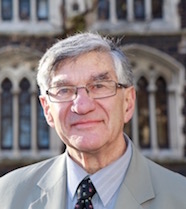Edgar Diabetes and Obesity Research (EDOR) members have co-authored an article acknowledging 100 years since the first dose of insulin was administered for the treatment of type 1 diabetes.
Published in The Conversation, the article outlines the interesting history around the arrival of insulin in NZ. Medical and research communities, along with those living with diabetes, have progressed treatment substantially over the past century, but major inequities exist in the management of diabetes in Aotearoa New Zealand.
What is type 1 diabetes?
People living with type 1 diabetes, an autoimmune condition that often develops in childhood, need insulin to survive because the cells in their body that usually produce insulin have been damaged or destroyed.
Insulin helps control the levels of sugar (glucose) in the blood. Every time we have a meal our body breaks down this food into individual components, with one of these compounds being glucose. Too little or too much blood glucose can damage organs and even be life-threatening.
Some of the most recent advances in treating type 1 diabetes include technologies that can continuously monitor glucose levels, allowing much better control of blood sugar levels using insulin, and limiting the damaging consequences of having too much or too little glucose in the body.
How are New Zealander's missing out?
Several continuous glucose monitors (CGM) are available, and many of these are proven to help with glucose control in those living with type 1 diabetes. These devices can have short and long-term health benefits for the individual, and also have major economic benefits for our health system by keeping people out of hospital and preventing the complications associated with diabetes. Importantly, these devices can take away some of the stress and anxiety for people living with type 1 diabetes and their families.
CGM technologies are not funded in Aotearoa New Zealand, but they are funded in other countries such as Australia and the UK. CGMs can cost individuals or their family upwards of $4500 per year and many families in New Zealand simply cannot afford to use them.
As stated by the authors,
"Access to life-saving and disability-preventing therapies for the one-in-500 New Zealand children (and thousands of adults) living with type 1 diabetes must not be restricted to those with money and connections."
Read The Conversation article
100 years after insulin was first used, why isn't NZ funding the latest life-changing diabetes technology? The Conversation, 16 November, 2022
Let's fund CGM
EDOR alongside the Healthier Lives–He Oranga Hauora National Science Challenge, Diabetes NZ and Lions New Zealand District 202F are hosting a symposium to highlight the new technologies that are available for the management of diabetes, and how they can improve the lives of those living with diabetes in Aotearoa New Zealand.
Transforming Lives: 100 years of insulin
- Thursday 24 November 2022
- 1pm - 5pm
- Parliament's Grand Hall, Wellington or via livestream
- Registration is free
Through this symposium, we hope to highlight why every New Zealander living with type 1 diabetes should have access to these life changing technologies.
Register here to attend in person or via livestream.
Authors of the article
- Professor Jim Mann, Co-director of EDOR
- Associate Professor Ben Wheeler, EDOR researcher
- Dr Cherie Stayner, EDOR research manager



